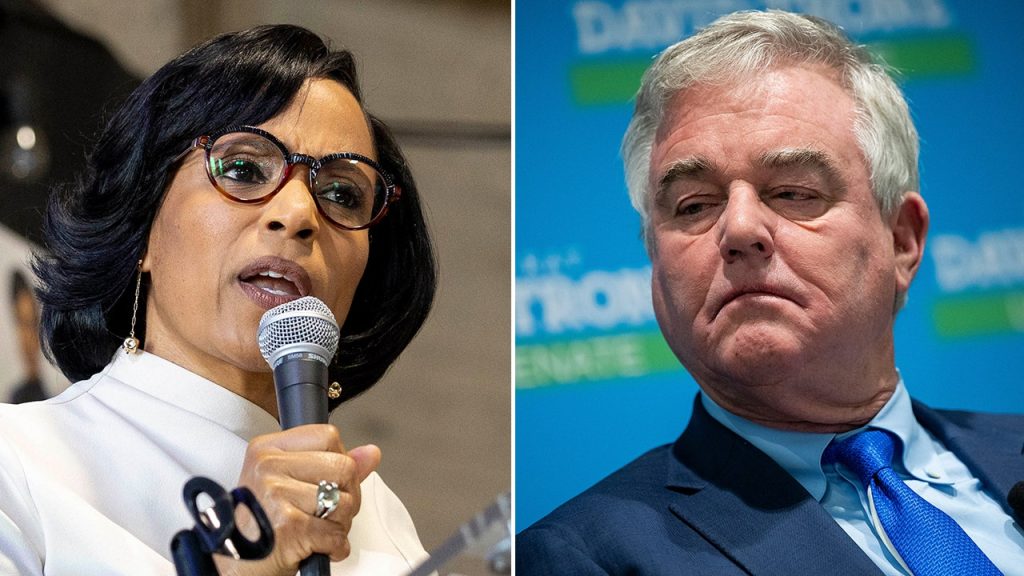Several Black lawmakers have decided not to endorse their Democratic colleague running in a closely watched Senate race after he used a racial slur in a House Budget Committee hearing. Rep. David Trone used the word “jigaboo,” a derogatory term for Black people, while speaking about tax policy with Shalanda Young, the director of the Office of Budget and Management. Despite apologizing and claiming he misspoke, Trone faced backlash from Reps. Barbara Lee, Yvette Clarke, Gregory Meeks, Joyce Beatty, and Jasmine Crockett, all of whom announced their support for his Democratic primary opponent, Price George’s County Executive Angela Alsobrooks, who is also Black.
Trone’s comments have led to a significant impact on his campaign, with prominent Black lawmakers withholding their endorsements in favor of his opponent. Despite his apology, Trone’s use of a racial slur has raised questions about his judgment and sensitivity towards communities of color. This incident has also highlighted the importance of accountability and the consequences of using offensive language, especially for individuals seeking public office. Trone’s campaign, which was already facing scrutiny over his comments on immigration and voting rights, now faces even greater challenges as he competes in a crowded Democratic primary field.
Trone’s remarks come at a critical time in the Senate race, where he is seeking to replace retiring Maryland Sen. Ben Cardin. While Trone holds a fundraising and polling advantage in the primary, Alsobrooks has emerged as a formidable challenger, garnering support from key lawmakers and constituents. The primary race will likely determine the Democratic candidate who will face Maryland’s former Republican governor, Larry Hogan, in the general election. Early polls show Hogan with a double-digit lead over Trone, posing a significant challenge to Democrats’ hopes of maintaining control of the Senate.
The use of a racial slur by a prominent Democratic candidate underscores the issues of race, privilege, and sensitivity in politics. Trone’s comments have sparked conversation about the importance of language and the impact of offensive words on communities of color. The decision by Black lawmakers to withdraw their endorsements in response to Trone’s remarks also highlights the significance of accountability and the consequences of using derogatory language. As the Senate race in Maryland intensifies, Trone’s actions and their repercussions will continue to shape the narrative and outcomes of the campaign.
Despite Trone’s apology and attempts to address the situation, the fallout from his use of a racial slur has had a significant impact on his campaign and support among Black lawmakers. The decision by key Democratic legislators to back his opponent underscores the seriousness of his actions and the need for greater sensitivity and awareness of racial issues in political discourse. As Trone navigates the challenges and controversies surrounding his candidacy, the aftermath of his comments will likely continue to shape the dynamics of the Senate race in Maryland and have implications for broader conversations around race, language, and representation in politics.


